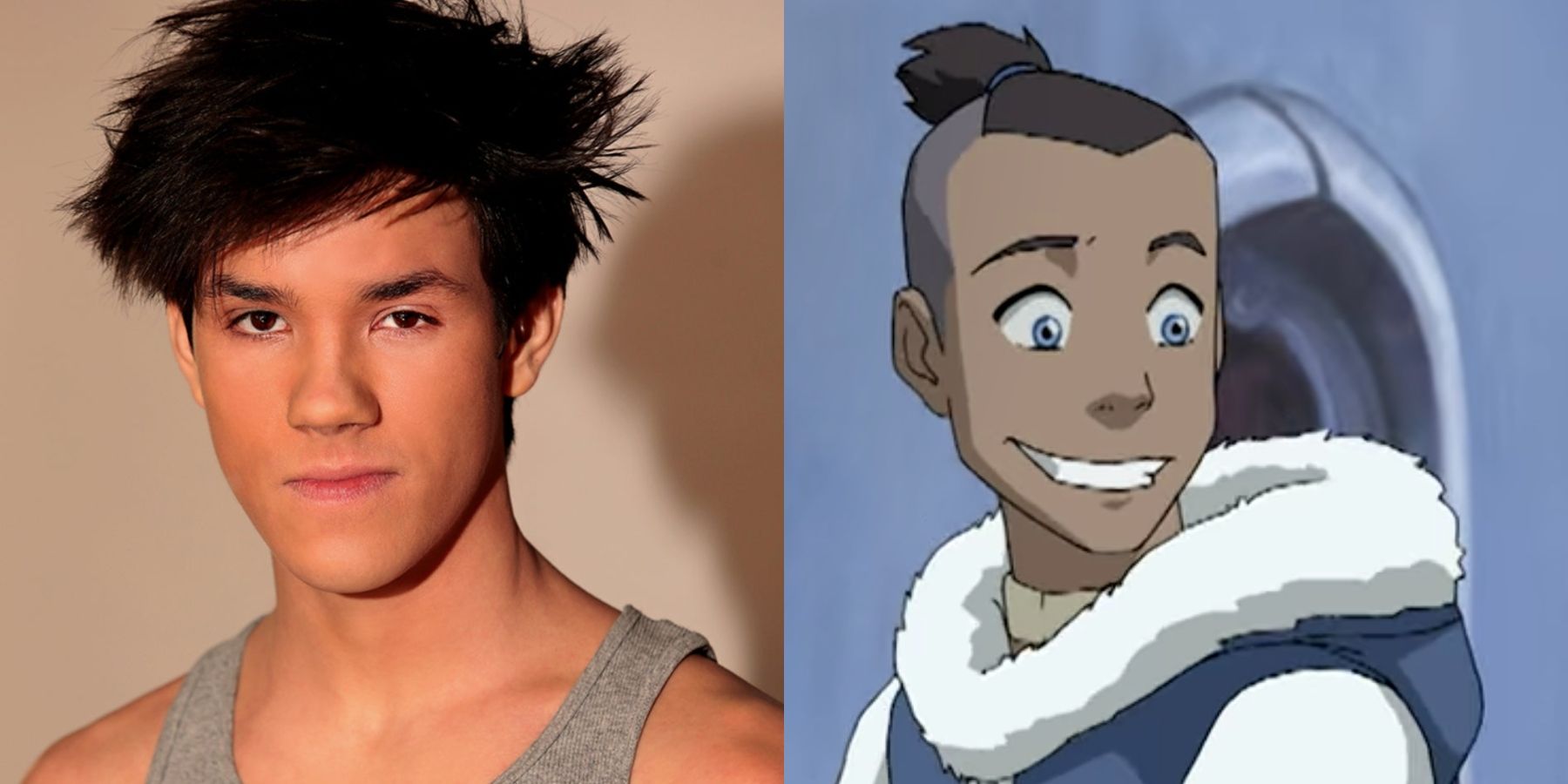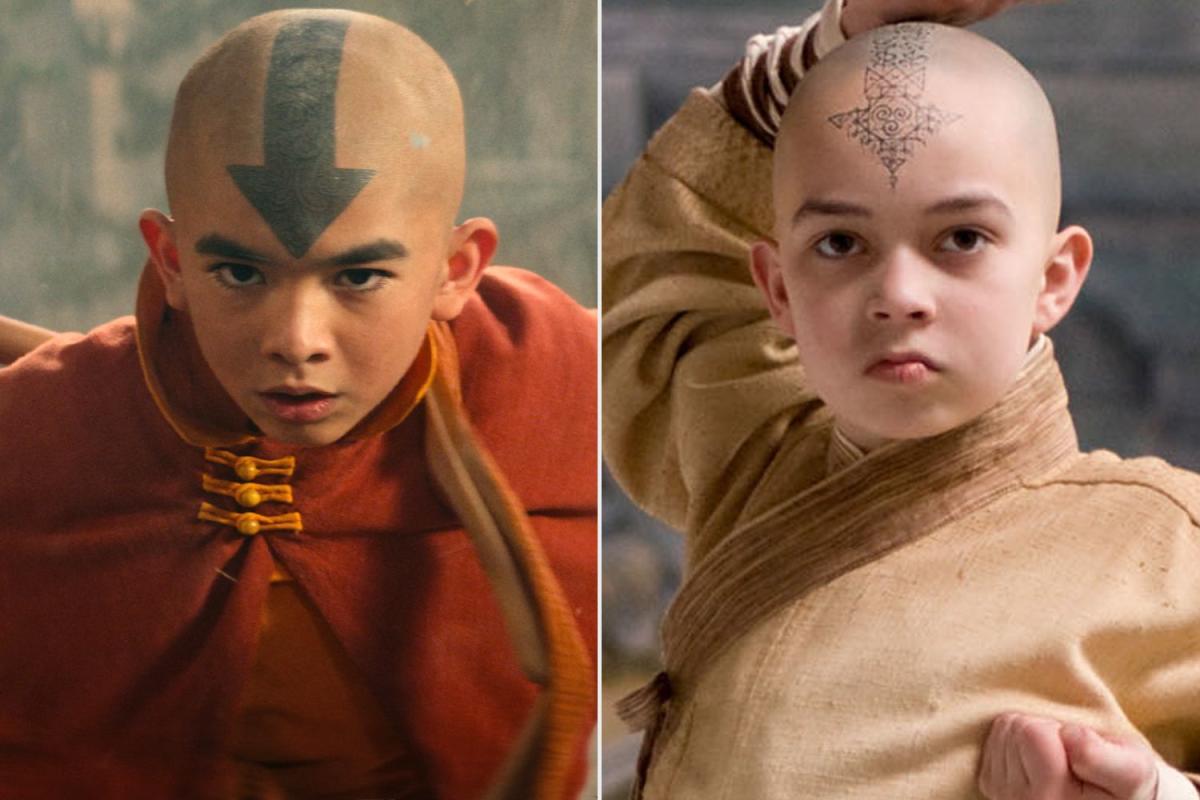Netflix Avatar's Woes: Live-Action Fails & Fan Criticisms
Is the magic of "Avatar: The Last Airbender" truly lost in translation to live-action? The recent Netflix adaptation, despite its promise, struggles to capture the essence of the beloved animated series, leaving many fans feeling disappointed.
The core of the issue, as many fans have pointed out, lies in a fundamental misunderstanding of the source material. The live-action show falters in its portrayal of the iconic characters, their physical appearances, and the very heart of the narrative. One of the most glaring problems is the visual presentation of the characters. Many, who are portrayed as lean and athletic in the animated series, appear "chunky" in the live-action version. This discrepancy alone immediately disconnects viewers who are familiar with the original series.
The lack of humor in the live-action adaptation is another significant drawback. The animated series skillfully balanced moments of levity with intense drama, creating a rich and engaging world. However, the live-action version seems to have stripped away much of this humor, leaving the narrative feeling heavy and lacking the charm that made the original so popular. This has left fans yearning for the clever writing and comedic timing that defined the animated series.
The writing and acting also bear a significant portion of the blame. The dialogue feels unnatural, and the characters often appear to jump from one emotion to another without any subtlety. Some are quick to point out the over-the-top expressions. The timing and cadence of their speech is so unnatural, further distancing the audience from the characters. This lack of nuance, coupled with the perceived flaws in the casting choices, has led many fans to question the adaptation's overall quality. While some performances have been praised, the consensus seems to be that the live-action show struggles to match the emotional depth and character development of the animated series.
For those unfamiliar, "Avatar: The Last Airbender" is a show that follows Aang, the last airbender, as he navigates the challenges of mastering the four elements, as well as fulfilling his destiny to bring balance to a world at war. It has earned widespread acclaim for its compelling story, memorable characters, and exploration of themes such as war, peace, and environmentalism.
The history of the franchise includes a widely-panned film adaptation directed by M. Night Shyamalan back in 2010. That version was considered a misstep in the eyes of fans, and that the live-action attempts seemed destined for failure. Many critics were quick to point out that Shyamalan's vision clashed with the spirit of the animated series, and the film was widely criticized for its poor pacing, miscasting, and tonal inconsistencies. The film's failure to capture the essence of the source material serves as a cautionary tale.
This is where the recent Netflix adaptation enters the equation. The show's creative team faced the daunting task of translating the beloved animated series into a live-action format. They had to grapple with the challenges of adapting a visually rich and culturally sensitive narrative while also appeasing a passionate fan base. Although some were hopeful, others were skeptical, the expectations were high.
The live-action series is not just a visual remake, but a reinterpretation of the story of Aang. The adaptation faces significant hurdles in capturing the depth and complexity of the animated series. For many fans, the animated series excels in its storytelling, character development, and world-building.
The casting decisions have also been a source of controversy. Some fans have voiced concerns over the portrayal of certain characters, particularly the physical appearances. The casting, particularly of Toph, is a key point of concern. Toph's character has been subject to changes, which fans are worried about how Hollywood views anime. This decision has sparked considerable debate, with some fans arguing that it represents a misunderstanding of the character's essence and a broader issue of how anime is perceived in Hollywood.
Beyond the actors, the writing and direction also bear responsibility for the adaptation's shortcomings. The pacing feels rushed, with key events and character arcs compressed or altered for time constraints. The dialogue often lacks the wit and depth of the original series, and the emotional moments fail to resonate with the same impact. Fans have noticed changes in dialogue cadence, with the feeling that something is off. In the live-action, Aang and his friends are often over-expressive and jump from one emotion to the next without the subtlety that made the original show so endearing. Many have also pointed out that the timing and cadence of their speech is so unnatural.
The core issues with the Netflix adaptation boil down to two main problems: writing and acting. No elements in the show are as refined as they were in the original cartoon. These issues are present in the storytelling choices and the quality of the performances. Many fans have expressed their disappointment with the adaptation's failure to translate the magic of the animated series.
The "Avatar" saga, from its animation, has always resonated with audiences. It is clear that the greatness of the show has always been in the way it was brought to life through animation. The story has been told in several ways, but the original animated series still stands out, offering more depth and character than ever before.
The first live action adaptation was also poorly received. The movie crammed 20 episodes of story into 90 minutes and the cast, which many felt was badly matched. A lot of apologists are making comments, suggesting that those who complain about the casting were hoping for a sexualized version of Azula. However, the animated series itself and the casting of younger actors has always been about the story. In Asia, being overweight is not seen as being fit.
The essence of the adaptation, is that the characters and the story is not there. When they adapted it in live action for the first time, people were rightfully upset at a lackluster adaptation, like it was written without watching the series.
This is the latest adaptation of Avatar. This show aims to be a more faithful adaptation, while adding surprises for fans.
One thing that's clear: the original animated series still stands as the definitive way to experience the story of "Avatar: The Last Airbender." And for many, the recent live-action adaptation does not stand up to the original. The show, simply called avatar: The last airbender, will faithfully adapt the show while adding surprises for fans. This is the subreddit for fans of avatar: The last airbender, the legend of korra, the comics, the upcoming netflix live action atla series, and all other avatar content. Discussion, cosplay images, fan art, fan fiction, tattoos, theories, and videos are welcome! Hate of any kind is not allowed here.
Many have said that the voice acting of Katara and Azula should have been swapped, one is more commanding and the other is not.
Ancient_tea_6990 is where one can find many comments. I'm only 4 episodes into the live action show, and i find katara's characterization so strange. In the original, katara takes on a motherly role for sokka. Her moments of rashness and impulsiveness are made all the more impactful when you understand her as someone who has had to grow up quickly. The subreddit for netflix's avatar: Season one is out now!
The live action show does a terrible job portraying or looking like the characters from the anime. So many of them are chunky when they should be thin and fit. And the humor is basically all gone! No elements in this show are as refined as they were in the og cartoon. Its crazy how much more emotion, character, and world believability comes across in the cartoon than the live action. In the live action, the actors, particularly aang and friends, are over expressive and jump from emotion to emotion with no subtlety. The timing and cadence of their speech is so unnatural. The last airbender is making a huge mistake in trying to change toph's character and it shows how hollywood views anime. The last airbender and it doesn't seem to be landing as well as expected. Fans are currently sending digs toward the acting and writing. In the live action they use him a lot more to draw attention away from her very very bad acting. The only time she's halfway decent is when she's angry and fighting with sokka and that's cuz she's acting like a child fighting with an older sibling or parent which everyone has experience with.
| Aspect | Details | Reference |
| Franchise | Avatar: The Last Airbender | Avatar Wiki |
| Type | Animated Television Series, Live-Action Adaptation | N/A |
| Original Air Dates | Animated: February 21, 2005 July 19, 2008 Live-Action (Netflix): February 22, 2024 Present | Netflix |
| Created by | Michael Dante DiMartino, Bryan Konietzko | IMDB |
| Production Company (Animated) | Nickelodeon Animation Studio | N/A |
| Production Company (Live-Action) | Netflix | N/A |
| Genre | Fantasy, Action-Adventure, Coming-of-Age | N/A |
| Key Themes | War, Peace, Environmentalism, Balance, Spirituality, Friendship, Duty | N/A |
| Main Characters | Aang, Katara, Sokka, Zuko, Toph, Iroh | Avatar Wiki |
| Key Elements | Bending (Water, Earth, Fire, Air), Avatar State, Spirit World | Avatar Wiki |
| Target Audience | Young Adults, Families | N/A |
| Critical Reception (Animated) | Highly Acclaimed, Winner of Numerous Awards | Rotten Tomatoes |
| Critical Reception (Live Action) | Mixed to Negative (initial reviews) | Rotten Tomatoes |


